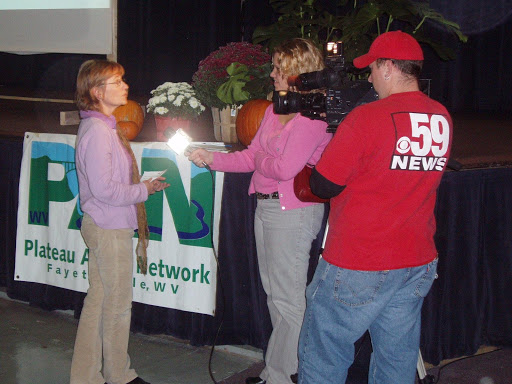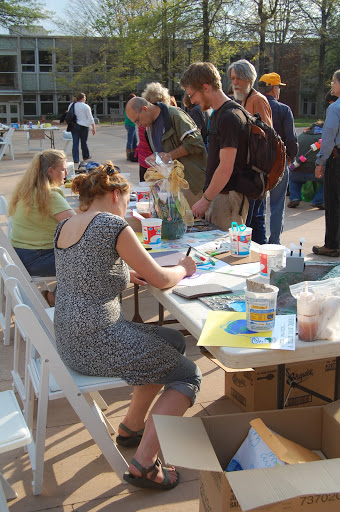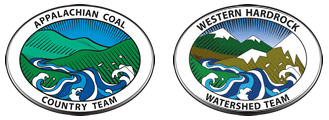Based on the work of
Plateau Action Network
Southern West Virginia
Plateau Action Network (PAN) received national recognition for engaging youth in organizing and implementing a Patagonia-sponsored Wild & Scenic Film Festival. For two years a dedicated community volunteer and an OSM/VISTA coordinated an effort to give the youth a voice in the festival. They worked to have environment-oriented short films played during school hours for hundreds of local high school students. Patagonia, critical to the success of the project, seeks to expand the membership base of hosting organizations. PAN took this one step further by building community membership and focusing primarily on youth education that was fun for those students involved.

Tested by
Friends of Russell Fork
Southwest Virginia
Friends of the Russell Fork (FORF) wanted to host a Wild and Scenic Film Festival as a way to recruit volunteers and to spread the word about their organization to a larger area. It was also a way to form new and stronger partnerships with other local groups, such as the Clinch Coalition who had hosted a film festival before. FORF applied for and was awarded a Patagonia Wild and Scenic Film Festival grant, with a remaining cost of $500 that was split between the partnering organizations. This grant gave FORF access to Patagonia’s film bank, technical support, planning toolkit, donations from national sponsors and more. FORF and its partners decided to make the event free to attend and did not sell tickets, though that is allowable with Patagonia. The film festival was also an opportunity to recognize the winners of an environmental art/essay contest that was held in the area schools. The reception was held in the courtyard outside the auditorium from 6-7pm with refreshments, crafts for kids, raffle items and a display of artwork from a school art/essay contest. Attendance was lower than they hoped, however, because it was difficult to generate interest in an event that was held about 40 miles from FORF’s home site in Haysi and 20 miles from McClure River Restoration Project’s site in Clintwood. The host organizations agreed that the money and time needed for this event were not worth the returns, though they were satisfied with the learning experience. It was agreed that if a film festival is held again, it would be held independent of Patagonia in an attempt to reduce costs and allow more freedom in its execution.
Tested by
Kiskiminetas Watershed Association
Western Pennsylvania
Kiskiminetas Watershed Association (KWA) wanted to build new partnerships as well as engage new volunteers/members to kick-start a more innovative approach and enable the group to become more active. A Wild and Scenic Film Festival was seen as an opportunity to move KWA outside its comfort zone with a new event to encourage growth. They particularly wanted to get youth involved in the local environment to increase their awareness of water issues and history. KWA decided that the organization would not be able to handle the costs and tasks that accompany an official Wild and Scenic Film Festival through Patagonia. They decided instead to work on a small youth film festival to be held in a local school independent of the Wild and Scenic Film Festival program. There were many issues with implementing this event, however. KWA had limited volunteers and resources to help with planning and speaking with school officials and local venues to gauge interest in holding a film festival either on or off school property. The science teachers KWA contacted expressed interest in the project, but it seemed to stop with them and never spread to higher levels of administration. KWA still wants to focus its efforts on educating local youth and may focus on smaller groups of children rather than take on a school-wide assembly.

“The event came together nicely in the end—it went more smoothly than I expected. Everyone pitched in and knew what job they needed to do. We also had a great film line-up and I feel like the people in attendance really enjoyed the films that were chosen. We also learned a lot from the event about what works and what doesn’t and how we should approach it next time.”
-Friends of Russell Fork
